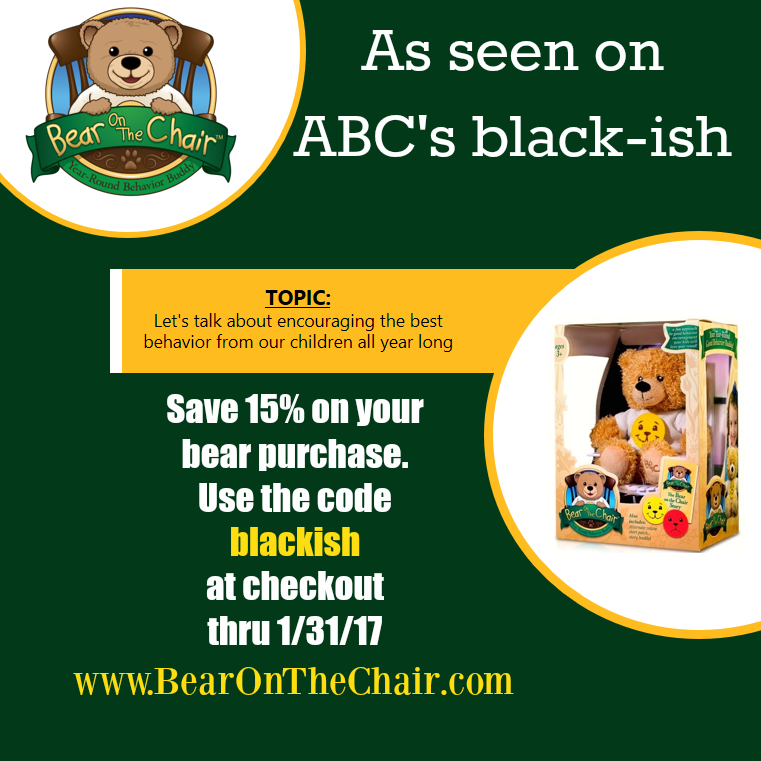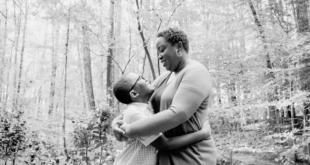I met Dr. Deborah Gilboa, better known as Dr. G, at the Parents Palooza event and expo in Atlanta in 2012 when she was the keynote speaker. Since then we’ve become “tweeps” which means we tweet each other, retweet each other, had a phone call or two and of course, enjoy running into each other at events. The last time I saw her in Atlanta for the Type A Parent conference she connected with bloggers and promote her new parenting guide: Get the Behavior You Want…Without Being the Parent You Hate. If that title doesn’t speak to your heart, than you must be Dr. Phil, Dr. Oz and Mary Poppins rolled into one parent. If you’re not one of them – you’ll love the real-life, practical lessons Dr. G offers in her easy to read guide. I hardly have time to read real books anymore. But I snuck in reading her 240 page guide while waiting in the carpool line, watching A.J. at an indoor playground and my fave – getting a pedicure (keep reading for the lesson inside I shared with the manicurist). In case you’re working on your New Year’s Parenting Resolutions or in general trying to stop yelling, begging and pleading with your children to get them to “act right” – peep what Dr. G has for you in her new guide that gives your age-specific suggestions for your children.

Parenting Resolutions
Be consistent and firm.
When you make a rule, guideline or edict – stick with it. I’m pretty firm – but I can waver a bit when the A.J.’s cuteness overflows or he whines a bit. (See more about whining below.)
Life, college professors and future bosses are very consistent with their rules. So the sooner your child learns that the better.
Start children’s chores and an allowance.
When A.J. turned 4, we started his weekly chores and a $1 per week allowance. To me, four-year-olds are great for chores because they like to help. Anytime I walk into the kitchen he yells, “Can I help?” I decided to use that energy for good. His job is to empty the wastebaskets in the bathrooms and bedrooms. First, I showed him how – while paying special attention to the notion that he may spill the baskets. Then I explained to him that he will earn $1 each week for completing it = $4 a month for a four-year-old.
Dr. G’s leaves it up to you to decide on chores earn an allowance or not. For home chores there’s always the question of what about when you’re on vacation or out of town – how do they earn it? I’ve decided to cross that bridge when we get to it. I may just give him an additional duty before we leave. Plus, he’s still required to clean up his dishes from the dinner table, his toys and books.
Conduct family meetings.
These can happen anywhere. In the bedroom at bedtime, in the bathroom while you’re brushing teeth or my favorite – on the car ride home from an event where all three us attended.
Check in with each other, ask about teachers and friends, talk about the upcoming family vacation.
My husband and A.J. have a weekly weekend outing where they discuss life and its challenges – then we talk about it together when they get home.
If you’d like some guidance on planning and tracking your family’s goals, I created a free printable family goals planner.

Ban whining.
Since is this is one of the issues I struggled with when it comes to A.J. (He rarely uses it on Dad, BTW). I went straight to the index at the back of Get the Behavior You Want…Without Being the Parent You Hate and plan to institute her advice in Chapter 53, It’s Still A Gift if You Ask for It.
Now I just have to institute it and be firm!
In 2016, I was introduced to Bear on the Chair ($29.99), a year-round behavior tool to remind children of what’s expected of them. An Ohio girl and her parents launched the idea that was recently featured on ABC’s black-ish. Use the code: blackish for 15% off thru 1/31/17

Hang in there with hobbies.
We’ve moved from music classes to karate and now Cub Scouts.
Has your child asked to quit taking lessons or participate in a sport? How did you handle it?
Remind your child of the need to donate, give money or volunteer.
At his age, A.J. doesn’t really have a view of who’s less fortunate and who isn’t. Occasionally, he’s seen a homeless person asking for money as we exit I-85 in Atlanta or drive through certain neighborhoods. I can only recall him asking once “why is the man standing there?” And he didn’t ask any follow up questions when I’ve given one a buck or two.
Next tim,e he asks I’ll use this as an opportunity to talk about ways to support people who have less than we do. He can decide whether to donate, give money or volunteer to help.
Your older child may be able to do even more and Dr. G’s book gives plenty of examples….
Think outside the box for life lessons.
Think Mr. Miyagi from the movie The Karate Kid. He had Daniel painting walls and buffing cars which seemed like it had nothing to do with learning karate when it was really tactical practice. But as you’ll read in Ch. 29 “Paying It Forward: Making the World a Better Place” you can teach them lessons in usual ways just like Mr. Miyagi did.
Let them be a challenged, uncomfortable and even get a little hurt.
Life isn’t easy. Dr. G has an interesting perspective on keeping kids happy. She emphasizes that’s not our job as parents – to make our children happy!
We talk about sadness and frustration with A.J. What’s made him the most upset is talking about my Father’s death. We had an all out boo hoo fest when it occurred to A.J. that his Granddaddy will never be able to take him to a Braves game. We felt it and we moved on. Other times we talk about the few times my Dad held A.J. when he was a baby. But I would never NOT talk to him about it or limit the direction of the conversation. We go as long as he’d like until the subject naturally changes. Usually he has a huge sigh of relief. His shoulders relax and his body language changes. He needs to get that out. He needs to feel sadness and relief.
Do you shy away from difficult discussions like death, money or sad incidents you see on TV news?
Have you talked to your children about challenges and disagreements with their friends? Do you let them sort it out or do you always get involved?

As the parent of one child I almost wanted to skip Ch. 38 on sibling management but I read it anyway to share the nuggets of knowledge with my friends who have two, three or more children.
What are your parenting resolutions for the New Year?
How can a new parenting book or behavior bear help?
About Dr. G
Dr. G is a family physician raising her four sons with her husband in Pittsburgh, PA. She travels extensively and has been a parenting expert and contributing writer to major news outlets including the Huffington Post and MSNBC.com. I also checked in with her earlier this year when A.J. appeared to be letting go of his afternoon nap.
Connect with Dr. G on her website AskDoctorG.com, tweet @AskDocG and interact on the Ask Doctor G Facebook page where she’ll be happy to answer your questions and offer resources on your parenting journey.
 Mommy Talk Show Candid Conversation with a TV Mom
Mommy Talk Show Candid Conversation with a TV Mom




I met Dr. G at Type A, and she was the nicest person! I bought her book, too.
This sounds like a great book. I’m going to have to look into it. I’m always looking to improve my patenting.
Dr G’s parenting guide sounds wonderful. I’m a parent of teens and there are some things you mentioned that I wish I’d addressed with my kids earlier. I should have been more consistent in volunteering with my kids to help them develop that good habit and to help them appreciate all they have.
Great tips. My daughter is always in her own complex world in that smart brain of hers, and I really want to work on getting her attention before giving a command/request. I get really tired of repeating myself!
I need to do so much better about requiring chores and then consistently giving them an allowance so they stop asking me to buy them things so often!
My favorite tip here is family meetings. This really helps everyone stay connected and know who is struggling with what and where everyone can lend a hand. Love it.
Those are some great ones, I’m going to try and not nag as much. You know, nag on the little things – I’m going to try and really pick my battles in the new year.
Oh the whining – my kids are pro’s at that. I consider whining disrespectful and prideful – this is the one thing that I do not tolerate when they do, their is a punishment for such behavior.
These are great tips, even for older kids! My son is 16, so we try to incorporate these ideas in his life, but these are good reminders to work on with him!
Being consistent I think if the biggest. I know too many parents who have rules this day and different ones on another day,
These are great life lessons for Children! I really need to work on the WHINING one! DD3 is horrible at it!!
We’ve got to get back on our commission charts and jobs! It makes everybody’s life easier!
Chores are a good thing and oddly enough kids do enjoy them. They have a sense of accomplishment. I remember we always had ‘regular’ chores and chores you could earn extra money with. (snow shoveling is an example of an extra)
Her book sounds like good sond advice that is not unrealistic. The only prt I am unsure of at very young ages is the giving- not that I disagree, but I think it should be aa choice how they give- they could donate toys , go through clothes or if older donate time. I know some parents let the 10% go toward future schooling and if they chose they could witdraw it all oncee they are done with school.
We do a chore chart for my daughter and she hasn’t found anything she wants to spend her money on just yet!
Love the video! You are teaching him money management, neatness, and obedience all in one! Love it.
I like the ban whining tip. Great tips-thanks!